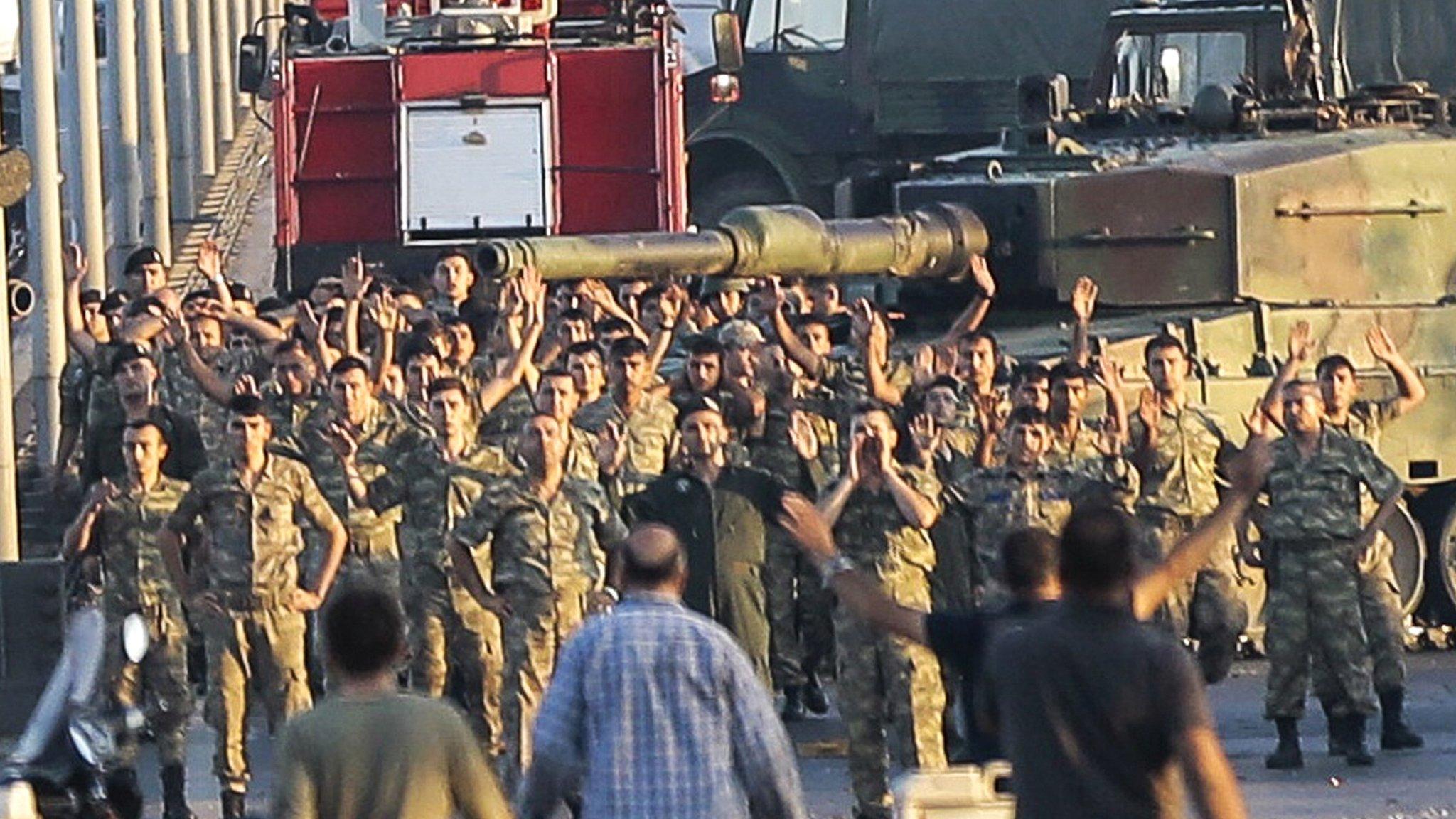Turkey 'coup': International reaction
- Published
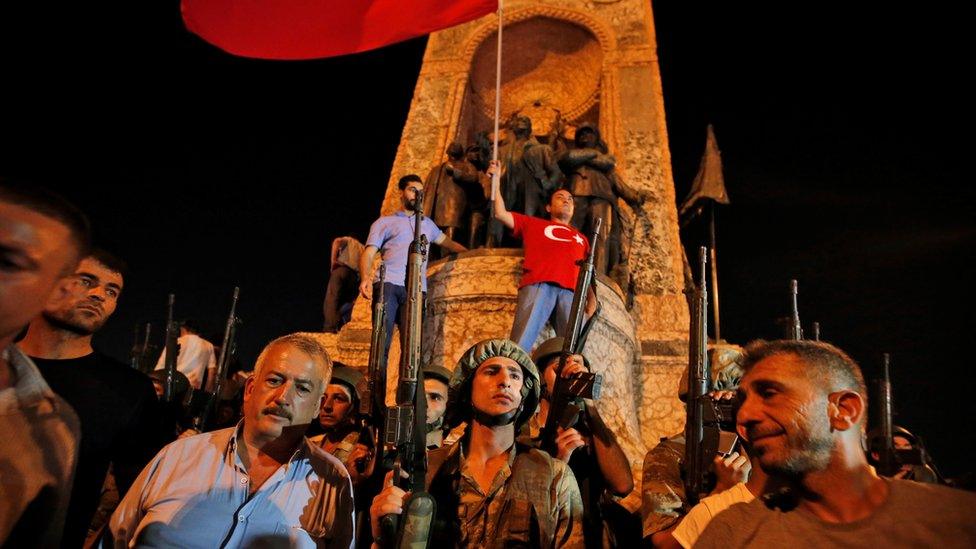
An army group in Turkey says it has taken over the country, with gunfire heard and military jets flying low over the capital, Ankara.
International figures having been responding to the unfolding situation in the country.
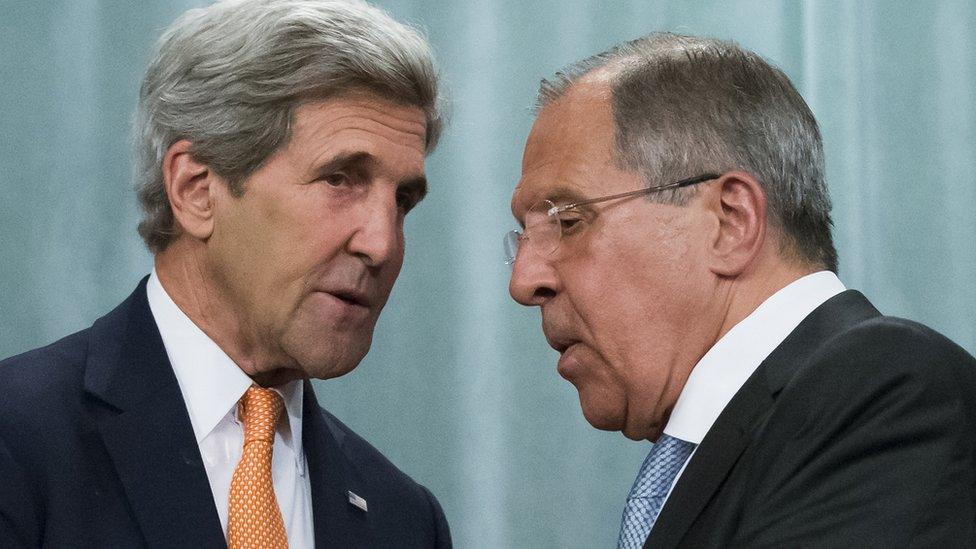
John Kerry (left) and Sergey Lavrov
The White House said US President Barack Obama had spoken to US Secretary of State John Kerry and agreed that all parties in Turkey should support the "democratically elected" government.
The pair urged all sides to "show restraint and avoid any violence or bloodshed" in Turkey - a key ally and a strategically important member of the coalition fighting so-called Islamic State.
Mr Kerry - who is on a visit to Russia - said he had spoken to the Turkish foreign minister, saying he had emphasised "absolute support for Turkey's democratically elected, civilian government and democratic institutions".
"The United States views with gravest concern events unfolding in Turkey," Mr Kerry said.
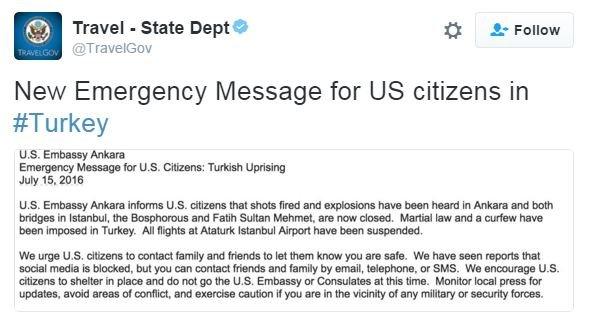
Russian Foreign Minister Sergey Lavrov highlighted the need to avoid all "bloodshed", saying that "problems in Turkey need to be resolved in accordance with the constitution".
Kremlin spokesman Dmitry Peskov said Moscow was "deeply concerned" at reports from Turkey, saying Russia's priority was to secure the safety of Russian institutions and citizens in Turkey.
"Moscow hopes that however events in Turkey develop, whoever initiated what's happened, the security of Russian citizens will be protected", he said
"Turkey is a very important regional power. Of course stability in Turkey and situation there has an impact on the situation in the region .
"So we all want whatever it is that is happening in Turkey to finish as quickly as possible, in a legitimate manner and for the country to return to the path of stability, predictability and order"
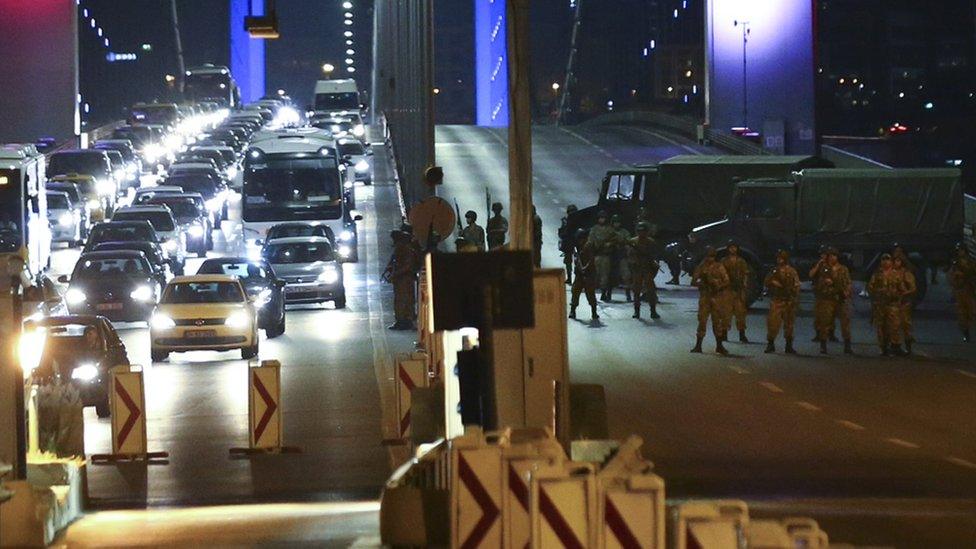
United Nations' Secretary-General Ban Ki-moon has appealed for calm, a UN spokesman said.
"The Secretary-General is closely following developments in Turkey. He is aware of the reports of a coup attempt in the country.
"The United Nations is seeking to clarify the situation on the ground and appeals for calm," spokesman Farhan Haq said.
Nato Secretary-General Jens Stoltenberg said Turkey was "a valued Nato ally", calling for "calm and restraint, and full respect for Turkey's democratic institutions".
Iran said it was deeply concerned about the situation.
"Stability, democracy and safety of Turkish people are paramount. Unity and prudence are imperative," Foreign Minister Mohammad Javad Zarif said on his Twitter account.
The Gulf state of Qatar - an ally of Turkey - denounced and condemned the apparent attempted coup, a Qatar state news agency reported.
Bulgaria has bolstered its patrols along the Bulgarian-Turkish border and appealed to Bulgarians not to travel to the country's southern neighbour, the government said in a statement.
It said Prime Minister Boiko Borisov had held talks with the security and intelligence services about the situation.


A spokesman for German Chancellor Angela Merkel said "the democratic order must be respected" in Turkey.
Steffen Seibert tweeted: "Everything must be done to protect human lives."
The UK's new Foreign Secretary Boris Johnson said he was "very concerned" about events, while the UK embassy advised British nationals in the country to avoid all public places and "remain vigilant".
European Union foreign policy chief Federica Mogherini urged "restraint" in Turkey after an attempted coup against President Recep Tayyip Erdogan.
"In constant contact with EU Delegation in Ankara & Brussels from Mongolia. Call for restraint and respect for democratic institutions #Turkey," she tweeted , externalfrom a regional summit in Ulan Bator.
- Published16 July 2016
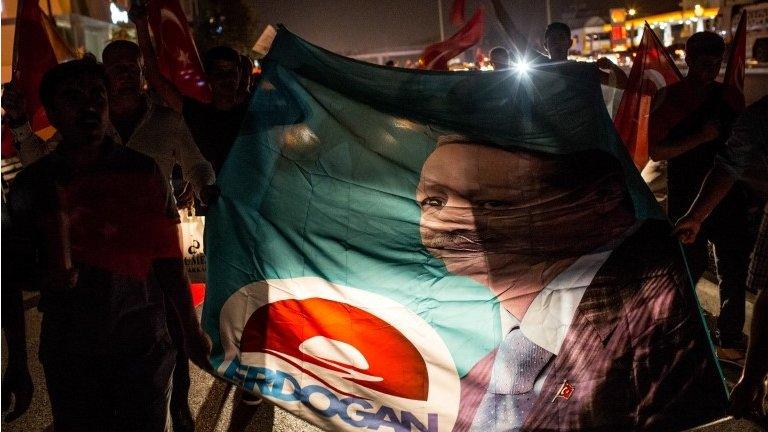
- Published15 July 2016
